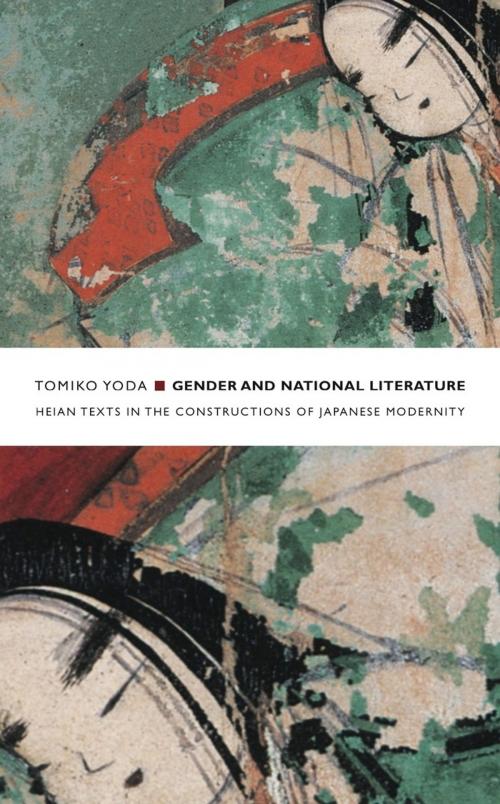Gender and National Literature
Heian Texts in the Constructions of Japanese Modernity
Fiction & Literature, Literary Theory & Criticism, Asian, Nonfiction, History, Asia| Author: | Tomiko Yoda, Rey Chow, Harry Harootunian, Masao Miyoshi | ISBN: | 9780822385875 |
| Publisher: | Duke University Press | Publication: | March 22, 2004 |
| Imprint: | Duke University Press Books | Language: | English |
| Author: | Tomiko Yoda, Rey Chow, Harry Harootunian, Masao Miyoshi |
| ISBN: | 9780822385875 |
| Publisher: | Duke University Press |
| Publication: | March 22, 2004 |
| Imprint: | Duke University Press Books |
| Language: | English |
Boldly challenging traditional understandings of Heian literature, Tomiko Yoda reveals the connections between gender, nationalism, and cultural representation evident in prevailing interpretations of classic Heian texts. Renowned for the wealth and sophistication of women’s writing, the literature of the Heian period (794–1192) has long been considered central to the Japanese literary canon and Japanese national identity. Yoda historicizes claims about the inherent femininity of this literature by revisiting key moments in the history of Japanese literary scholarship from the eighteenth century to the present. She argues that by foregrounding women’s voices in Heian literature, the discipline has repeatedly enacted the problematic modernizing gesture in which the “feminine” is recognized, canceled, and then contained within a national framework articulated in masculine terms.
Moving back and forth between a critique of modern discourses on Heian literature and close analyses of the Heian texts themselves, Yoda sheds light on some of the most persistent interpretive models underwriting Japanese literary studies, particularly the modern paradigm of a masculine national subject. She proposes new directions for disciplinary critique and suggests that historicized understandings of premodern texts offer significant insights into contemporary feminist theories of subjectivity and agency.
Boldly challenging traditional understandings of Heian literature, Tomiko Yoda reveals the connections between gender, nationalism, and cultural representation evident in prevailing interpretations of classic Heian texts. Renowned for the wealth and sophistication of women’s writing, the literature of the Heian period (794–1192) has long been considered central to the Japanese literary canon and Japanese national identity. Yoda historicizes claims about the inherent femininity of this literature by revisiting key moments in the history of Japanese literary scholarship from the eighteenth century to the present. She argues that by foregrounding women’s voices in Heian literature, the discipline has repeatedly enacted the problematic modernizing gesture in which the “feminine” is recognized, canceled, and then contained within a national framework articulated in masculine terms.
Moving back and forth between a critique of modern discourses on Heian literature and close analyses of the Heian texts themselves, Yoda sheds light on some of the most persistent interpretive models underwriting Japanese literary studies, particularly the modern paradigm of a masculine national subject. She proposes new directions for disciplinary critique and suggests that historicized understandings of premodern texts offer significant insights into contemporary feminist theories of subjectivity and agency.















